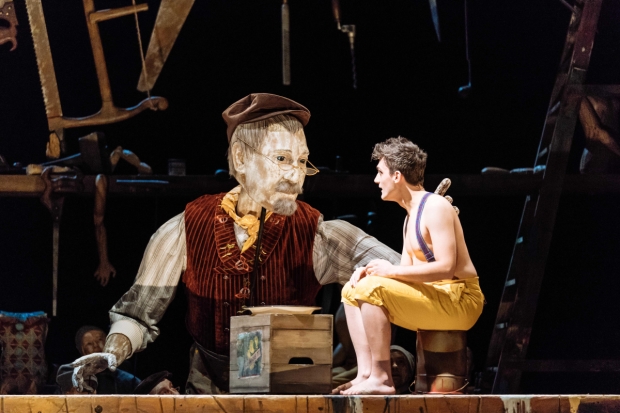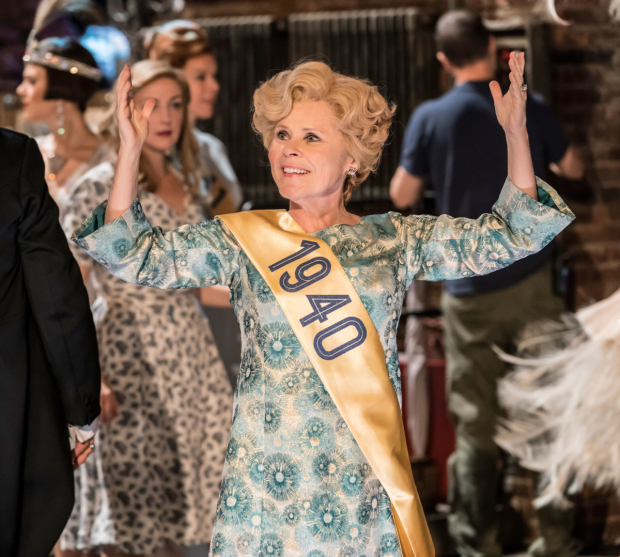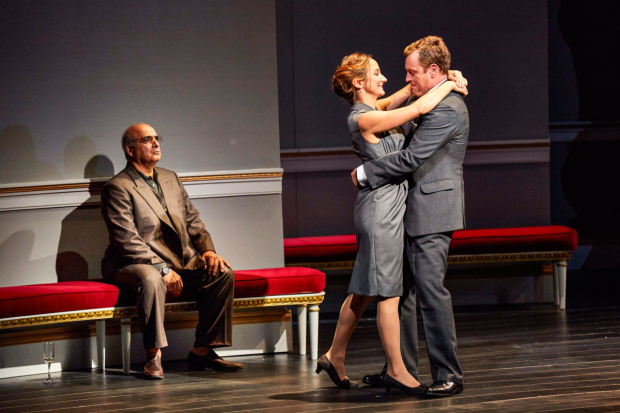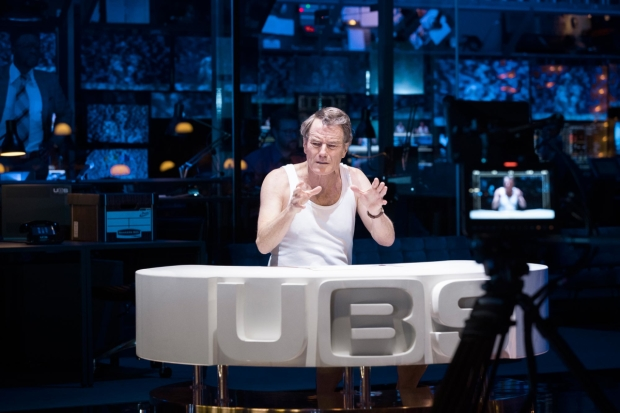Were the Pinocchio critics highly strung?
Sarah Crompton, WhatsOnStage
★★★
"It is darkly beautiful and disturbing, a morality tale rather than a singalong adventure. But it isn't, for all the creators' best efforts, quite magical enough. It looks sensational, but unlike Harry Potter and the Cursed Child which was director John Tiffany's last outing for children – or indeed unlike his entrancing Let the Right One In – it never quite soars to the heights."
"The problem lies in the story. Pinocchio is a difficult tale. Being selfish and naughty, he's not a very nice central character – as Disney discovered. His most interesting quality is the way his nose grows when he lies (not that often here) and his escapades are strange and upsetting rather than exciting: the naughty children on Pleasure Island are turned into donkeys and sent to the glue factory (or to the mines, here) for goodness sake."
"He scores some successes though – and they are rewarded with beautiful performances. I was very fond of Audrey Brisson's OCD Jiminy Cricket, with her constant worries about bacteria and germs, and David Langham is excellently oily and terrifying as The Fox, catching a perfect tone of menace and madness. Hadfield anchors the whole thing with his warmth and his sense of loss."
Natasha Tripney, The Stage
★★★
"At times, Tiffany’s production resembles one of those disturbing central European animations that used to crop up on Channel 4 at 2am. This is partly down to the fact that one of the production’s chief devices is to have the human characters represented by massive puppet heads and floating torsos – like terrifyingly huge moustachioed Funkos – while the school children that Pinocchio encounters resemble Midwich Cuckoos in their matching uniforms and eerie white masks. Joe Idris-Roberts’ Pinocchio is the most human-looking entity on stage."
"Idris-Roberts is an engagingly impish presence in the title role. There’s precision in his performance, whether interacting with puppets large and small or clambering over and around Bob Crowley’s set. David Langham is a pleasingly vulpine villain (with a superbly swishable tail), even if his motivation is somewhat muddy, and Annette McLaughlin brings warmth to the role of the Blue Fairy."
"But the production as a whole suffers from a lack of momentum. The first half in particular lacks a sense of urgency. The blend of the creepy and the sweet never quite resolves itself."
Michael Billington, The Guardian
★★★★
"The puppetry, masterminded by Toby Olié, is excellent. But the fascination of the show lies in the fact that it is like a modern version of a medieval morality play. The hero, who yearns to be human, is torn between good and evil: Jiminy Cricket represents his conscience while the Fox, energetically played by David Langham with top hat and tail, symbolises wicked temptation. It is the conflict between the two that makes up the story, with the Blue Fairy representing a dea ex machina always ready to save Pinocchio from his errors. It is typical of this version’s maturity that the Fairy, an anodyne cutie in the movie, is here played by Annette McLaughlin as a figure of magisterial kindliness."
"It all makes for a rich evening that, as my 12-year-old grandson pointed out, is scary as well as funny. Tiffany as director and Bob Crowley as designer also know how to combine simplicity and spectacle. Stepladders evoke the scholarly world Pinocchio escapes."
Henry Hitchings, Evening Standard
★★
"The results are frustratingly inert. Given that this is billed as a musical, it takes a remarkably long time for a proper song to materialise. The pace is at first sluggish, with the only trace of magic being the dancing flame that represents the Blue Fairy’s guiding spirit."
"When Pinocchio’s nose extends to the length of a broomstick or a troupe of marionettes suspended by ribbons accompanies him as he dances, it’s impossible not to be impressed by the ingenious effects. Yet spectacle prevails over heart and soul. It’s as if the show's formidable technical demands have compromised everything else. The second half is more dramatic, but the tone remains uncertain, and for a piece ostensibly aimed at children it’s oddly cold, remote and joyless."
Paul Taylor, The Independent
★★★★
"This is the first time that the Disney organisation has given its blessing to a stage version of the 1940 movie and Martin Lowe as Music Supervisor does some lovely, ingenious work, with his orchestration and embellishments, in stringing out, the handful of ridiculously catchy songs ("Give A Little Whistle", "When You Wish Upon A Star", "Hi Diddle-Dee-Dee – An Actor's Life For Me" et al) that comprise the score. He effects some remarkable variations of rhythm on "Give A Little Whistle" so that it's almost a limp when our hero and sidekick near home and the step-ladder houses full of the hard-hearted start to glide past them."
"If I was not fighting sobs by the end, this was no fault of Annette McLaughlin who is deeply affecting in her climactic rendition (with choir) of "When You Wish Upon A Star" nor of Mark Hadfield who achingly captures the puppet-maker's lonely selfless devotion to his substitute son. The ingredients are all there."
Dominic Cavendish, The Telegraph
★★★
"If the age-old moral is "Be careful what you wish for" – Pinocchio swiftly sets about showing himself an ingrate (comically guzzling his pa’s fish supper) – the same maxim applies to the creative team’s big idea, namely that while Pinocchio is played by a jerky-limbed flesh-and-blood actor, the primary grown-ups are represented by the top-halves of giant puppets looming above the principal actors they have been eerily modelled on; everything has been scaled-up."
"But often Kelly’s script, focused on unpacking its father-son issues, ambles (even when assisted by an enjoyably arch turn from David Langham as the predatory Fox) when it should boyishly skip and leap."















